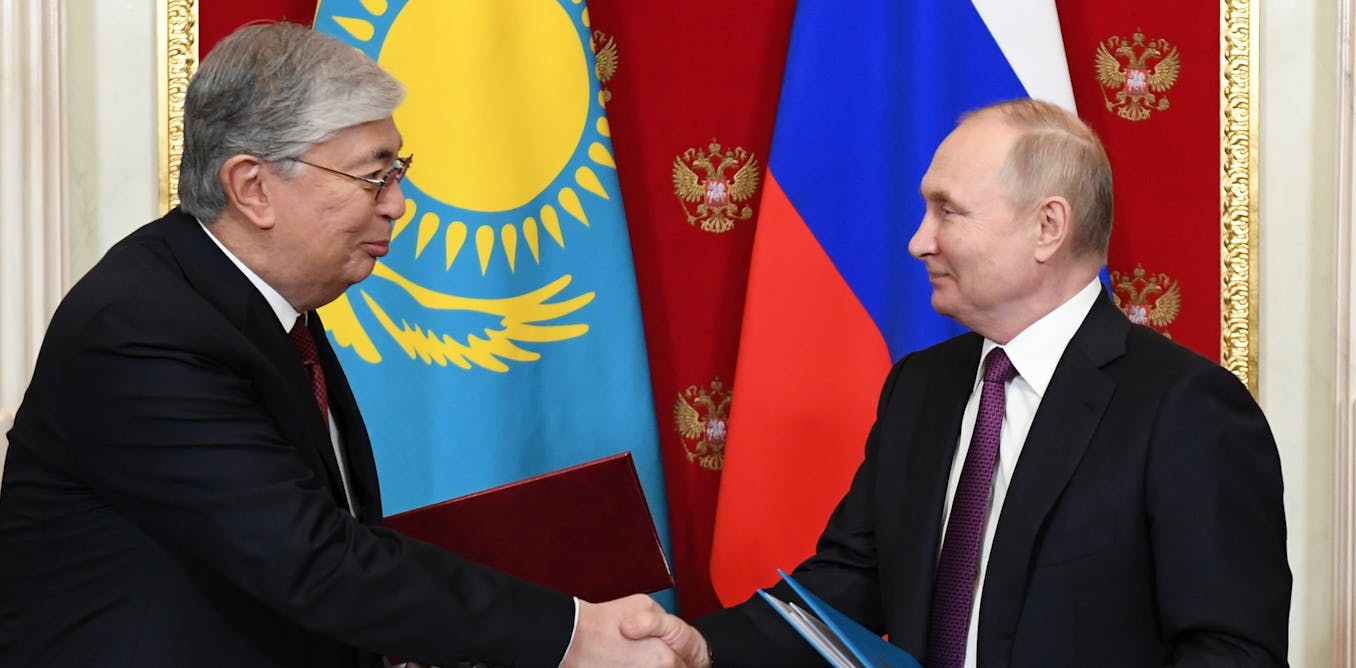Ukraine war: Russia only hurts itself with its inflammatory discourse on Kazakhstan
It has been a turbulent year in Russian-Kazakh relations. Russia’s oil rich neighbour, which straddles central Asia and eastern Europe, started the year by asking for Russia’s help in restoring stability after protests erupted in its major cities.
But Vladimir Putin’s invasion of Ukraine has affected their relationship. The president, Kassym-Jomart Tokayev, has refused to recognise Russia’s annexation of territory in Ukraine, distancing his country from its long-time ally.
Continued here